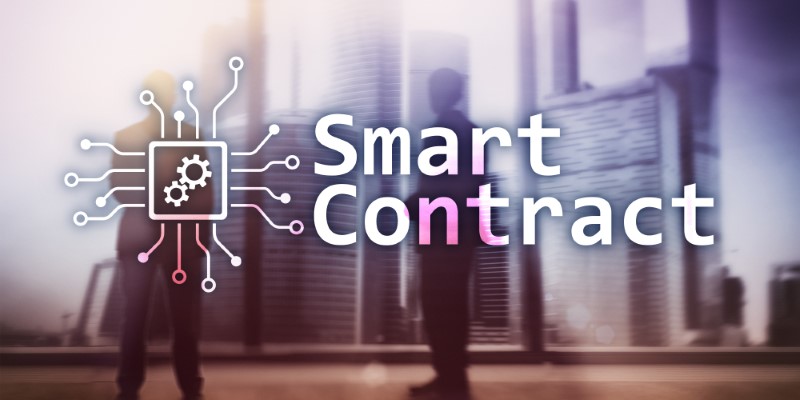Intelligent contracts are revolutionizing the financial sector by automating and securing agreements between parties. These digital contracts, built on blockchain technology, execute predefined terms without the need for intermediaries. This article delves into the workings of intelligent contracts in financial agreements, examining their components, applications, challenges, and prospects. Understanding these elements is essential for anyone looking to grasp the transformative potential of smart contracts in finance.
Introduction To Smart Contracts In Finance
Smart contracts are self-executing contracts with the terms of the agreement directly written into code. They run on decentralized networks, typically blockchains, offering transparency, security, and immutability. Unlike traditional contracts that require intermediaries like banks or lawyers for execution and enforcement, intelligent contracts automate processes, reducing costs and time.
Smart contracts facilitate various transactions in finance, from simple agreements to complex financial instruments. They provide a transparent and efficient way to manage financial dealings, enabling real-time contract execution and settlement. This technology is gaining traction due to its ability to minimize errors and disputes while increasing trust among the parties involved.

Key Components And Technology Behind Smart Contracts
Smart contracts are self-executing digital agreements on blockchain networks that automate transactions without intermediaries. They ensure trust, transparency, and efficiency by leveraging decentralized frameworks, cryptography, and specialized programming languages.
Smart Contract Code
Smart contracts are written in programming languages tailored for blockchain, such as Solidity for Ethereum. The code contains the rules and conditions of the agreement, determining how the contract executes based on inputs. Once deployed on the blockchain, the smart contract operates autonomously, executing transactions when predefined conditions are met.
Decentralized Applications (DApps)
Smart contracts often function as the backbone of decentralized applications (DApps), which run on a blockchain rather than a centralized server. DApps leverage smart contracts to facilitate various financial transactions, including lending, trading, and insurance. Their decentralized nature enhances transparency and reduces reliance on intermediaries.
Oracles
Oracles play a critical role in the functionality of smart contracts by providing external data that the contract needs to execute. For instance, a smart contract for a crop insurance policy might require weather data to determine payouts. Oracles bridge the gap between blockchain and real-world information, ensuring smart contracts react to real-time events and data.
Blockchain Technology
At the core of intelligent contracts is blockchain technology. A blockchain is a decentralized, distributed ledger that records transactions across many computers, ensuring the data is secure and tamper-proof. Each transaction is bundled into a block and linked to the previous block, creating a chain of blocks. This structure makes it difficult for any entity to alter past transactions, providing an immutable record of all activities.

Applications Of Smart Contracts In Financial Agreements
Smart contracts automate financial agreements on the blockchain, eliminating intermediaries and reducing costs, delays, and errors. They streamline insurance, DeFi, lending, asset management, and securities trading operations.
Automated Payments
One of the most significant applications of smart contracts in finance is automated payments. Businesses can set up contracts automatically, releasing funds when specific conditions are met. For example, a freelance contract might stipulate that payment is made upon the completion of a project, with the intelligent contract verifying the completion through a predefined process.
Loan Agreements
Smart contracts can streamline loan agreements by automating the entire lending process. From application to approval and disbursement, intelligent contracts facilitate transparency and speed. For instance, a borrower could secure a loan by collateralizing cryptocurrency in a smart contract, automatically releasing funds once the loan terms are met.
Insurance Claims
In the insurance sector, intelligent contracts can transform claims processing. By automating the verification of claims through oracles, insurers can reduce fraud and expedite payouts. A smart contract might trigger payment when an oracle confirms that an insured event has occurred, such as a natural disaster, minimizing the need for manual claims processing.

Challenges And Future Prospects
Smart contracts face regulatory uncertainty, security risks, and scalability issues. However, advancements in blockchain technology and evolving regulations offer promising prospects for reshaping the future of financial agreements.
Technical Limitations
While intelligent contracts offer numerous benefits, they also face technical limitations. Writing bug-free code is crucial, as even minor errors can lead to significant financial losses. Additionally, network congestion can affect the performance of intelligent contracts, impacting transaction speed and efficiency.

Legal And Regulatory Issues
The legal status of smart contracts remains to be determined in many jurisdictions. With clear regulations, parties may be able to enforce intelligent contracts in traditional courts. This ambiguity can deter potential users from adopting intelligent contracts, as they may need more legal protections.
Security Concerns
Despite blockchain's security features, smart contracts are not immune to vulnerabilities. Hacks and exploits have occurred, leading to the loss of millions in cryptocurrencies. Ensuring robust security measures and conducting thorough audits of intelligent contracts are essential to mitigate these risks.
Scalability
As the popularity of intelligent contracts grows, so does the demand for blockchain scalability. Current blockchain networks may need help to handle a large volume of transactions simultaneously, leading to delays and increased costs. Solutions like layer-2 scaling and interoperability between blockchains are being developed to address these challenges.
Future Prospects
The future of smart contracts in finance appears promising. As technology evolves, we can expect improvements in scalability, security, and regulatory clarity. Financial institutions are increasingly exploring intelligent contracts for various applications and partnerships between blockchain companies and traditional financial entities are on the rise.
Moreover, the rise of decentralized finance (DeFi) will likely accelerate the adoption of smart contracts. DeFi platforms leverage intelligent contracts to create financial services without intermediaries like lending, borrowing, and trading. This shift could fundamentally change how financial services are delivered, increasing accessibility and reducing costs.

Conclusion
Smart contracts represent a transformative force in financial agreements, offering automation, transparency, and security. By eliminating intermediaries and enabling real-time execution, they streamline various finance processes, from automated payments to insurance claims. However, technical limitations, legal uncertainties, and security concerns must be addressed for widespread adoption.
As technology advances and regulatory frameworks develop, the potential of smart contracts in finance will likely expand. Embracing this innovation could lead to a more efficient and equitable financial ecosystem, reshaping the future of financial transactions for individuals and businesses.





